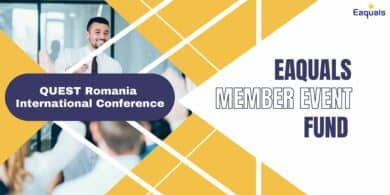Eaquals Member Event Fund: Quest Romania International Conference

QUEST Romania:Emotional Intelligence and Digitalisation in Language Teaching and Learning
|

QUEST Romania:Emotional Intelligence and Digitalisation in Language Teaching and Learning
|